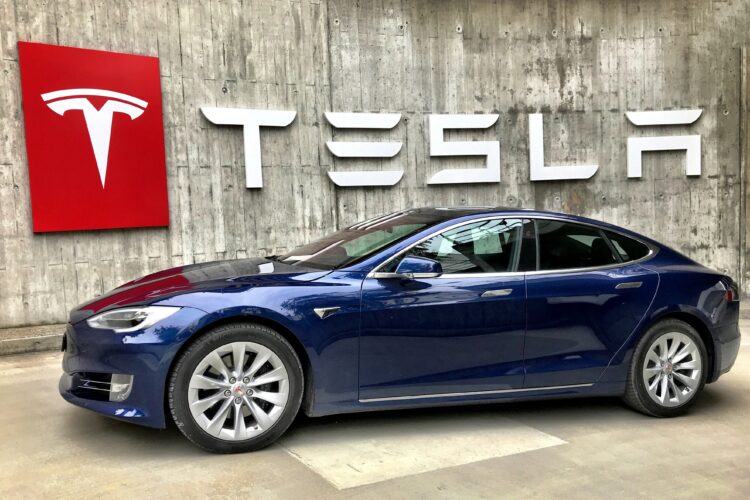Reports suggest that China is not pleased with Tesla CEO Elon Musk’s plans to establish an electric vehicle manufacturing plant in India. Musk has expressed his anticipation for a meeting with Indian Prime Minister Narendra Modi on social media platforms. Following a meeting with PM Modi in New York last year, Musk confidently stated that Tesla would make its entry into India as soon as possible.
- It is widely speculated that Musk’s visit to India is to announce a significant project that has been in the works for several years. This project is expected to involve Tesla investing between $2-3 billion to set up a factory for manufacturing entry-level electric vehicles, potentially the Model 2, with an estimated price of around Rs 25 lakh.
- In addition to this, Musk is also expected to discuss his Starlink project in India. The Indian government, led by Narendra Modi, is reportedly expediting the application process for a satcom license for Starlink.
- However, Tesla’s projected entry into the Indian market has reportedly caused some discontent in China. A report in The Global Times suggests that it could be challenging for India to accommodate Tesla, as the US carmaker may struggle in India’s underprepared and immature market for electric vehicles.
- The report further states that while Tesla’s impending investment in an EV facility in India will undoubtedly benefit the country and boost EV production, it may not necessarily be a prudent decision for the electric vehicle maker.
- Tesla currently operates four electric vehicle factories worldwide, located in California, China, Texas, and Germany. Among these, Tesla’s Giga Shanghai factory in China is notable for its substantial production volume, consistently manufacturing over half of all Tesla electric vehicles in recent years, thus playing a crucial role in Tesla’s global production network.
- The article concludes by stating, “As for Tesla, which primarily focuses on mid- and high-end sectors and mature markets, it remains uncertain whether it will find success in India. Despite the growth of India’s EV market, its size remains small. Statistics from 2023 show that electric vehicles accounted for just 2.3 percent of total passenger vehicles sold in India.”
Check: Funny Memes
Also Read: Tesla Company: Revolutionizing the Automotive Industry
Challenges noted for Tesla if it launches in India
1. The article highlighted that India is grappling with the challenge of widespread adoption of fast electric cars due to the lack of public charging infrastructure.
2. It pointed out that India is facing a power shortage, and its efforts to expand coal mines and power plants for additional power generation could hinder its ability to meet climate goals.
3. Amid these hurdles, the article suggested that it would be difficult for Tesla to turn a profit in India’s nascent market for EV vehicles.
4. The article further emphasized that the limited domestic production of essential components, such as lithium-ion batteries for EV vehicles, poses a significant obstacle for Tesla. It stated, “One of the biggest issues is the limited domestic production of core components like lithium-ion batteries for EVs. India is starting relatively late in trying to create an indigenous EV supply chain.”
5. The article advised that India should adopt a more realistic, gradual approach to invite Tesla to manufacture cars in the country. It suggested, “Given the complex economic landscape, India’s ambitions for EV vehicles should be implemented step by step with patience and openness. In this process, India should consider strengthening cooperation with neighboring countries and promote manufacturing development with a more pragmatic attitude.”
It’s worth noting that the Indian government has recently approved a new electric vehicle policy in response to Musk’s long-standing request. This new policy will permit the import of completely built-up electric cars that have a minimum cost, insurance, and freight value of $35,000 (Rs. 29.2 lakh) at a 15% import duty for five years, provided there is a minimum investment of $500 million to initiate local manufacturing. India imposes an import duty of up to 100% on completely built-up cars.
In the recent past, the Narendra Modi-led government turned down a proposal from China-based automaker BYD to establish a $1 billion factory in India in collaboration with Hyderabad-based Megha Engineering and Infrastructure Ltd. In the fourth quarter of 2023, China’s BYD Auto surpassed Tesla to become the world’s largest electric carmaker.
In 2022, the Centre blocked Great Wall Motor, a Chinese carmaker, from buying a manufacturing plant from General Motors in India. SAIC Motor Corporation’s MG Motor has teamed up with India’s JSW Group to produce EV vehicles.
Check: Life Quotes
Also Read: 5 Popular Electric Pickup Trucks Real World Range Test






